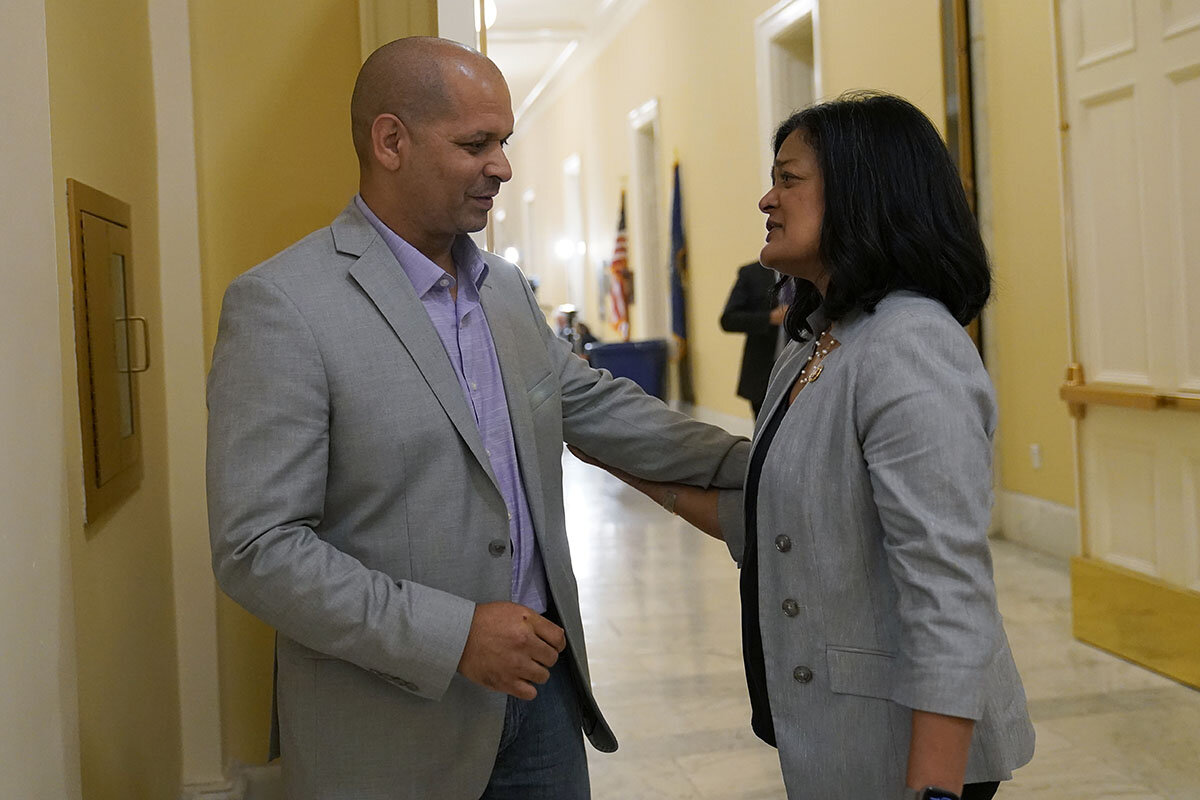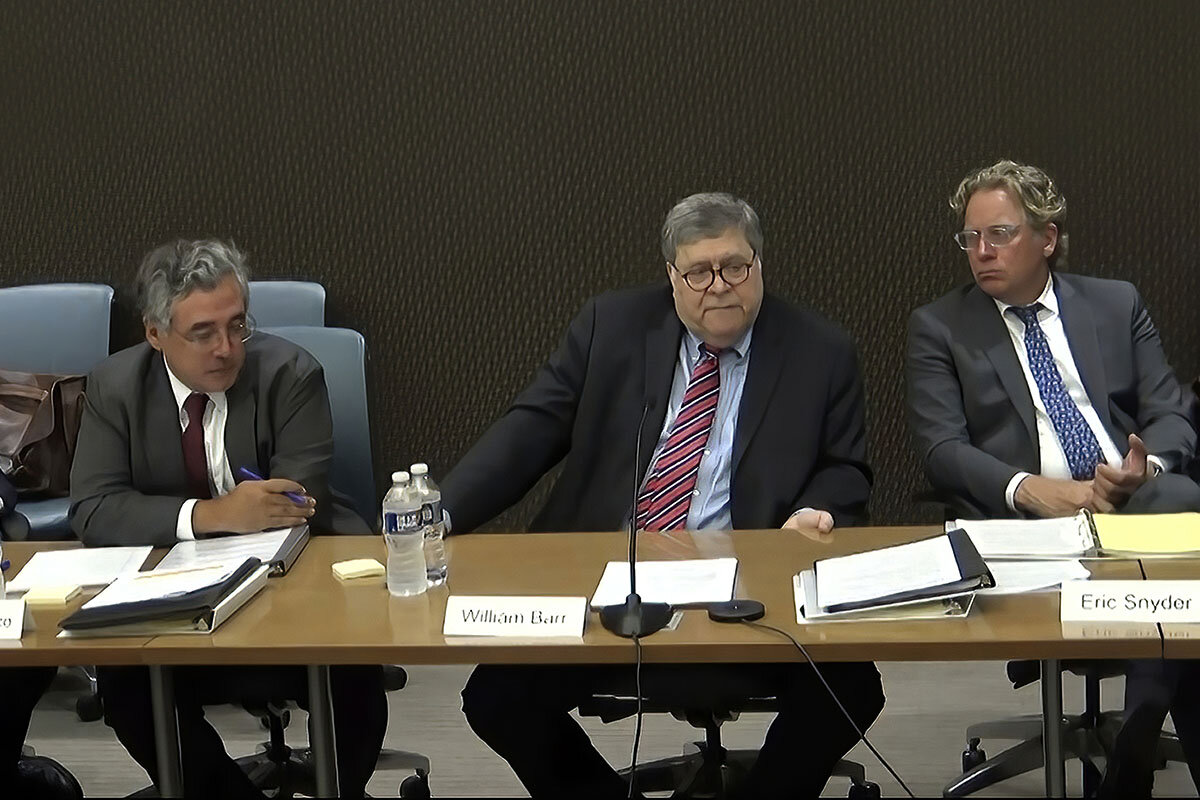As the Jan. 6 committee prepares for its next hearing, a clear theme is emerging: Former President Donald Trump is singularly responsible for fomenting the attack on the U.S. Capitol.
Drawing largely on interviews with half a dozen people from Mr. Trump’s inner circle, the hearings so far have portrayed him as a leader who ignored his top advisers’ advice and misled his followers in a bid to overturn a free and fair election and prevent an orderly transfer of power.
The strategy of making the former president the focal point deflects attention away from the responsibility borne by campaign advisers, social media companies, and Trump supporters themselves for the buildup of anger that erupted in a Capitol riot. That suggests the committee may be trying to give Mr. Trump’s allies a face-saving way to come out against him in greater numbers. Whether that effort succeeds or not, the committee seeks to establish a definitive narrative for posterity that the former president’s actions constitute an unprecedented attempt to subvert American democracy.
Jennifer Stromer-Galley, an expert on presidential messaging at Syracuse University, says that the best way to counter misinformation like Mr. Trump’s election fraud messaging is by offering a new story or framework. “There is the possibility that over time the narrative that this hearing is advancing will shift the historical narrative about what happened in the 2020 election.”
Though many expected the committee to investigate Mr. Trump’s involvement and piece together what he was doing in the West Wing as police officers battled rioters for hours on Jan. 6, 2021, the laserlike focus on him as the instigator of an attempted coup has surprised even some Democrats.
“Donald Trump’s role is central,” Rep. Pramila Jayapal, head of the Congressional Progressive Caucus, told the Monitor after watching the June 9 opening hearing in person along with a handful of other members. “I thought maybe that would be something that would sort of emerge – but it was clearly the through-line.”
In a video preview of the next hearing, scheduled for June 16, Republican Vice Chair Liz Cheney said the committee will focus on how Mr. Trump pressured Vice President Mike Pence to challenge the certification of the Electoral College vote – a move she said violated two criminal statutes, citing a ruling by a federal judge.
But while many have found the investigation’s line of inquiry to be bolder and more direct than expected, the committee itself appears split on whether to recommend criminal charges. Nearly a year and a half after the riot, Mr. Trump has not been indicted on any charges related to Jan. 6.
“What [Mr. Trump] did was reckless and wrong,” says Jonathan Turley, an expert in constitutional law at George Washington University who testified against Mr. Trump’s first impeachment in 2019. However, he adds, the hearings “have not come close thus far to creating a compelling case for criminal charges.”
William Barr as star witness
The nine-member committee has so far relied heavily on testimony from former Trump officials, perhaps in part to counter criticism that the committee is imbalanced because the two Republican members voted for Mr. Trump’s second impeachment for “incitement of insurrection” after the Capitol riot.
The first and second hearings showed video clips of committee depositions of members of Mr. Trump’s inner circle.
Former Attorney General William Barr has emerged as the most prominent witness so far, discussing at length Mr. Trump’s allegations of election fraud, which he variously referred to as “complete nonsense,” “bull----,” “crazy stuff,” “idiotic,” “groundless,” “very amateurish,” and “a grave, grave disservice to the country.” He and other Trump insiders have been criticized for being far more forthright with the committee than they were with the public at the time.
The former attorney general described one exchange that took place just hours after he had told The Associated Press he’d seen no evidence of fraud on a scale that would change the election result. Mr. Trump, he said, was as mad as he had ever seen him. The former president insisted there had been a “vote dump” in Detroit, to which the attorney general explained that the city’s 630 precincts sent their ballots to a central location for counting. Mr. Barr said he added, “Did anyone point out to you that you actually did better in Detroit than you did last time?”
Before the election, Mr. Barr said he felt the president could be reasoned with, even if “you sometimes had to engage in a big wrestling match.” But afterward, he said, that was not the case. “I felt very demoralized because if he really believes this, he’s lost contact with – he has become detached from reality.”
In mid-December 2020, Mr. Barr quit. “I repeatedly told the president in no uncertain terms that I did not see evidence of fraud,” he said in a taped interview broadcast the first night of hearings. “And frankly, a year and a half later, I haven’t seen anything to change my mind.”
Local officials have had a similarly challenging time trying to reason with Trump supporters who believe the election was stolen. A county election official in Pennsylvania who is now facing a citizen-driven push to do a hand recount of the 2020 ballots says it’s frustrating that even after what has been wrongly interpreted as election irregularities gets explained, Trump supporters keep using the same exact talking points. While many have blamed Mr. Trump, this official says another important factor is social media.
“It makes it possible for people who believe outlandish, ridiculous conspiracy theories to find each other and join together,” says the official, who was granted anonymity so that they could speak more freely about a sensitive issue. “The challenge now as a country is: How do you de-radicalize this many people?” adds the official, who has had little time or energy to watch the hearings.
But was it an “actual coup”?
The committee is seeking to prove that Mr. Trump forged ahead with a plan to disrupt the orderly transition of power based on claims he knew to be false.
During Monday’s hearing, the committee highlighted courts’ responses to the dozens of election fraud cases brought on Mr. Trump’s behalf. These snippets, which were provided without context, ranged from “hearsay,” “speculation,” and “hazy and nebulous” to “implausible,” “wholly unreliable,” and “without merit.”
Amid pushback from the courts and his own campaign leadership, Mr. Trump, the committee said, held a late-night session with lawyers Rudy Giuliani and Sidney Powell to explore alternatives to move forward. It was after that meeting that he tweeted:
“Big protest in D.C. on January 6th. Be there, will be wild!”
The committee portrayed the Trump followers who heeded that call as misled – and in many cases robbed of their hard-earned money by fundraising efforts that brought in $250 million for an “official election defense fund” that the committee determined did not exist. As the violence unfolded, Mr. Trump was told that rioters were chanting, “Hang Mike Pence.” According to the committee – which did not name its source – Mr. Trump then responded with the sentiment: Maybe our supporters have the right idea. Mike Pence “deserves it.”
Still, while the hearings have produced new details, the information largely supports what was already known, says Professor Turley.
“What some of us are looking for is evidentiary connections that would support a claim of an actual coup or a plot by the president,” he says. That would include evidence that ties the president to the coordination or encouragement of the subsequent violence beyond implicit encouragement, such as when he told the Proud Boys to “stand down and stand by” in a fall 2020 presidential debate. While Professor Turley condemned Mr. Trump’s address on Jan. 6, he says in his view it was protected free speech and neither that address nor a “reckless” determination to push ahead against the advice of his inner circle would constitute a crime.
He also disputes the ruling of federal Judge David Carter, which Ms. Cheney referenced in her preview of Thursday’s hearing. In a lawsuit brought by the committee to obtain the emails of Trump legal adviser John Eastman, who had put forward a plan to disrupt certification of the 2020 election, Judge Carter wrote in March, “the Court finds it more likely than not that President Trump corruptly attempted to obstruct the Joint Session of Congress on January 6, 2021.”
Thursday’s hearing will examine Mr. Trump’s efforts to pressure Vice President Pence into overturning the election. The committee’s preview of the hearing concludes with former Trump White House lawyer Eric Herschmann relating some “free legal advice” he gave Mr. Eastman the day after Jan. 6: “Get a great effing criminal defense lawyer. You’re going to need it.”







